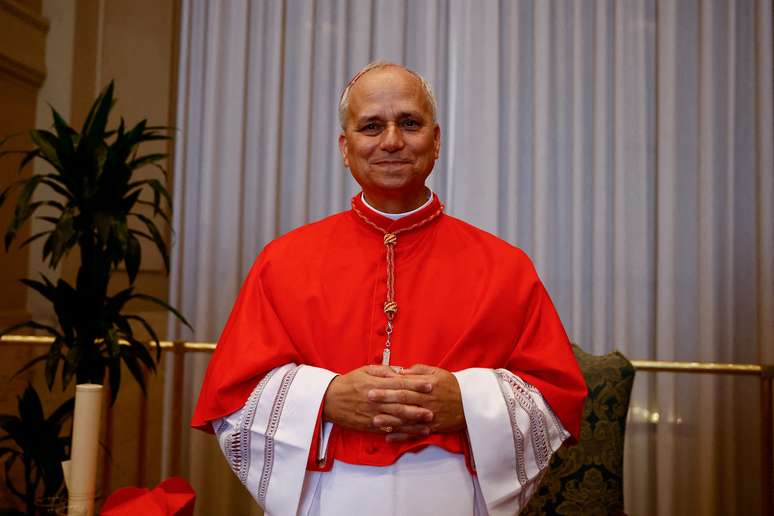Besides focusing on the labor market, the institutions offer innovative initiatives and the development of business solutions
For those looking for training in university education with an emphasis on proximity to the job market and are in a hurry to get their hands dirty, technologist courses – or higher technology courses – could be the choice. With a duration of two to three years, they have in their curricula the articulation with the productive sector for the professional insertion of the students.
A trademark of technologists, the focus on employability has shared space with the encouragement of entrepreneurship and innovation in vocational training institutions. This is the case of the Colleges of Technology (Fatecs), distributed in 70 municipalities of São Paulo.
In a discipline of integrative projects, found in most courses, which work on learning based on real business problems, students seek to present solutions involving the use or creation of new technologies. An entrepreneurship extension course was also designed to enable students to develop sustainable business models.
“We have to train students to accept a job, but also to undertake with their companies, open startups and provide services as self-employed workers. That’s why we have been working on this concept of ‘workability’,” says André Luiz Braun Galvão, pedagogical director of Fatecs. According to him, the digitization trend driven by the covid-19 pandemic has highlighted the need to reflect on the matter. “Some professions are ceasing to exist, others will emerge, and the very issue of technology is bringing about changes. There are a lot of students who graduate and they won’t be working in physical, face-to-face jobs in the company, but in the home office,” he says.
According to surveys carried out on graduates, around 88% of former students find a job within a year of completing their course. It was this perspective that motivated the choice of Reinalddo Vitort Hangrand, 58 years old. He is in the first term of the Systems Analysis and Development course at Fatec São Paulo, a course that had the biggest competition for the entrance exams in the first semester. A graduate in Chemical Engineering, Reinalddo worked in the sector until 2017, when he took on a consultancy role. He now he is looking for a professional transition to the technology area. “I see that the engineering career and management positions are very low. Then I said, ‘I’m not going to do a degree, I have to do something more current that I can put into practice as soon as possible'” says the engineer, he also graduated in industrial administration.
The option for the technologist course took into consideration, in addition to the search for new professional opportunities, the concern for a curriculum in line with the job market and the updating of contents. “Matching the engineering part with systems analysis, which the market needs, will help a lot. It’s an area I like and has great potential in artificial intelligence, databases and the internet of things (IoT )”, he claims . If a few years ago courses aimed at the industrial sector reached high levels of demand, training courses such as Systems Analysis and Development, Information Technology Management, Business Management and Multi-platform Software Development now stand out, which, according to the pedagogical director, was prepared in collaboration with the IT production sector to identify gaps in the recruitment and training of professionals.
Participation of professionals in the lessons
At Senac São Paulo, systems analysis and development also tops the list of most sought-after courses, along with radiology, human resource management, gastronomy, and marketing. The organization has seen an increase of about 40% in the demand for high-tech courses, compared to the pre-pandemic period. According to the coordinator of higher education projects, Ricardo Felix de Souza, the technology courses in Digital Games and Photography have resumed and those in Animation Design and Graphic Design – recently created – are experiencing an upward trend in demand.
With a view to intensifying the link with the market, the institution has implemented measures such as the participation of professionals in courses, events with graduates and involvement in projects in three innovation centers. ‘In these centres, students develop projects for the market based on real demands from society, which broadens their employability possibilities and gives them greater visibility.’
The methodology used in the high-tech courses has some specificities to meet the guiding principles, such as the formation of professional skills, the inseparability between education and social practice and interdisciplinarity, contained in the guidelines of the modality. According to Ricardo, the curricular structure of the Senac courses proposed the development of multiple projects, in order to stimulate market experiences. “Projects are essential stages of a very complete creation process. As a result, student assessment is also differentiated, valuing the development of skills throughout the learning process.”
It also emphasizes offering extension projects to intensify students’ social action and create opportunities for them to apply the knowledge gained during the course in practical action with the community. In Fatecs, the programs offer certifications that certify specific skills developed, which correspond to professional qualifications. This is the case with the “front-end developer” and “back-end developer” certifications, obtained during the Multiplatform Software Development training.
The institute, which is launching a course in Sports and Leisure Management in this winter entrance exam and announcing a new option for a higher technology degree program in Business and People Management (three years, offering career opportunities ranging from from micro-enterprises to leadership positions in large companies), it also has a link with the technical training carried out at the State Technical Institutes (Etecs): those who complete secondary education integrated with technical education can enroll in a five-year course and, with two more years of course , graduated from higher education.
industry and education
Technology-based education reform will be necessary for the country’s growth to resume, according to the Industry Recovery Plan, presented Thursday by the National Confederation of Industry to the federal government. According to the CNI document, professional training, along the lines of what has been done in the most developed countries, should be a priority.
The plan lists five actions: the implementation of the new secondary school (suspended until next week for the collection of contributions); the modernization of professional learning; the implementation of a national proposal for the recognition of knowledge based on skills and abilities; a national policy for vocational and technological education adapted to the medium and long-term supply and demand of the productive sectors; and the development of a public policy for the retraining and improvement of workers.
Technology, in the case of basic education, was also among the topics addressed by the Stadium in the series of events Education reconstruction. It is a partnership with Fundação Itaú, Fundação Lemann, Fundação Maria Cecilia Souto Vidigal, Fundação Vivo Telefônica, Instituto Natura and Instituto Península. And it has the support of Consed, Undime and Todos Pela Educação.
winter entrance exams
ESPM
Registration: Until 20/6
Date of the online interview: from 3/4 to 20/6
Test date: 6/25
Registration fee: BRL 120
Do it
Registration: Until 2/6
Test date: 6/25
Entry fee: BRL 91
Faap
Registration: Until 15/6
Test date: 18/06
Registration fee: BRL 170
ibmec
Registration: Until 7/6
Test date: 7/7
Entry fee: BRL 150
mackenzie
Registration: Until 6/7
Test date: 15/06
Registration fee: BRL 160
Methodist
Entry fee: free
PUC
Registration: Until 6/7
Test date: 18/06
Registration fee: BRL 180
Senac
Enrollment: Until 18/08, with the exception of the Technology of Gastronomy course (8/4)
Deadline for submitting the essay online: 8/18
Registration fee: BRL 25
Source: Terra
Rose James is a Gossipify movie and series reviewer known for her in-depth analysis and unique perspective on the latest releases. With a background in film studies, she provides engaging and informative reviews, and keeps readers up to date with industry trends and emerging talents.




![Such a wonderful sun in advance: Summary of the Episode of Friday May 9, 2025 [SPOILERS] Such a wonderful sun in advance: Summary of the Episode of Friday May 9, 2025 [SPOILERS]](https://fr.web.img3.acsta.net/img/64/3e/643eee90358f278b5b6ba954f85d645b.png)


